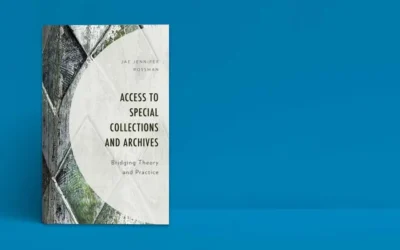Continuing Professional Education Resources for Special Librarians
Miriam Kahn, MLS, PhD
Engaging in self-directed continuing professional education is key for staying active and engaged in the special library profession. Schedule the time, find a learning resource, and go for it.
The teleworking, telecommuting, digital world offers plenty of opportunities to learn anything and everything. Our professional organizations offer courses and workshops, podcasts and webinars. Institutions of Higher Learning make one hour and multi-day learning opportunities available to students, alumni, and guests.
Resources for Staying Current
Information professionals know it’s important to be aware of what is going on in the world. Staying current with news and events is essential for anyone working in reference and research.
- Take a few minutes every day to read local and national newspaper headlines or listen to the news.
- Dive into articles of interest and import. Limit yourself to 30 minutes per day and try to avoid overlapping news feeds.
- Take some time to cull your e-mail news subscriptions to the two that are most important. Revisit these news feeds every month; try a new topic, newspaper, or perspective.
Social media is another way to stay current on the news, the profession and with colleagues. But too much time on social media just wastes time.
- Limit yourself to 15 minutes a day.
- Turn off notifications and e-mails from social media. You’ll find you don’t miss much and unless you need the notifications and alerts for work, you can live without them during “work hours.”
Resources to Polish Your Business Skills
Just as learning a new aspect of the information profession is important, so is incorporating new business and management skills. Whether you work in a one or multi person information center, you need management skills.
Focus on one aspect of your working life you want to improve at a time. Hone interpersonal skills. Polish writing and editing skills. Learn to manage or supervise, either yourself or your subordinates, more effectively.
Read the latest motivational business materials or some of the classics. Now is the time to expand your business skills. Read a few of the classic business books like “Who Moved My Cheese,” “FISH,” “The Goal” or Stephen Covey’s “The 7 Habits of Highly Effective People.” Most are short. Even if you’ve read them, reread and discuss them with colleagues in a virtual group.
Business self-help books, blogs, and podcasts abound. Pick one and read or follow it for a time. Incorporate one concept from the book into your working life each week or month 1
Resources to Practice Digital Minimalism2
In a teleworking world, there’s no time to get sucked into the digital, social media morass. Cut the cord. Control your digital and social media distractions.
There are scores of great business books on the market and there are plenty of blogs and online newsletters that will encourage you to stay focused, to wean yourself from social and digital media, teach interpersonal skills, and so much more. Pick a book, most are slim. Read a chapter a day or a week.
The current guru of digital minimalism in Cal Newport. His current book Digital Minimalism: Choosing a Focused Life in a Noisy World (NY: Portfolio, 2019) is eye-opening, his blog posts are succinct and informative. You can find his works at https://www.calnewport.com/. Newport reminds readers that healthy minds and bodies are essential for success in business, in life, and in this time of social turmoil. Rather than shutting off your brain and emotions, consciously direct your emotional energies toward growing your mental and intellectual interests. TURN OFF THE NEWS and unplug. It is so much healthier.
1Even newspapers have business advice, for example Dean Kissick, “This Time-Management Trick Changed My Whole Relationship with Time” NYT (June 23, 2020) https://nyti.ms/2Yq5ppx
How to be excellent at everything – (book)
2 I wrote about digital minimalism in “Librarians and Technology #5: Embracing Focus and Increasing Productivity” (Feb. 26, 2019) https://lucidea.com/blog/embracing-focus-increasing-productivity/ and in subsequent posts in that series.
3 Here’s a selected list of national organizations that regularly offer continuing education.
- Society of American Archivists https://www2.archivists.org/ SAA Continuing Education https://www2.archivists.org/prof-education/continuing-education
Sources of Professional Development Resources and Gateways
When it comes to professional development resources, state, national, and international organizations are the first place most information professionals turn to3. In early 2020, these organizations shifted from in person to virtual conferences and presentations. Self-directed continuing professional education is easier than ever to access. In many cases, presentations are streamed and then recorded for registrants to view later.
It’s important to actually watch the presentations not just register for them. Again, make time in your schedule for these educational programs. Remember that professional enrichment and continuing professional education are an integral part of any position. Watch these programs and discuss them in the virtual study group you’ve created, or discuss them with colleagues at the daily or weekly check-in staff meeting.
Today, most if not all of the iSchools and LIS programs offer online, continuing education courses, and webinars. A careful look at the website for your alma mater will provide a list of such courses.
Professional organizations offer continuing education workshops and webinars. Many institutions including the Library of Congress, the National Archives, and the Smithsonian, to name a few, have switched from in-person lectures and programming to webinars, webcasts, and even podcasts. Many but not all are free with registration.
There are a number of non-institutional generic librarian and information professional educational courses including WebJunction through OCLC https://www.webjunction.org/find-training/free-events.html, Library Leadership Podcast https://libraryleadershippodcast.com/, and Library Juice Academy https://libraryjuiceacademy.com/.
Merlot.org is a curated collection of Open Educational Resources (ORE) evaluated by professionals in the various disciplines from history and literature to science, computer and information sciences. The collected resources provide access to online resources in most STEAM topics, professional, and health topics. The website states “the MERLOT system provides access to curated online learning and support materials and content creation tools, led by an international community of educators, learners and researchers.” They also run the OLC Innovate annual conference. In addition to finding websites to learn about both new and familiar topics, you might volunteer to evaluate the new online resources. You can find their offerings at https://www.merlot.org/merlot/index.htm.
Summing It Up
Self-directed continuing professional education requires dedication and drive. Practitioners must choose to enrich and expand their skills and their understanding of the profession. Using these resources, Information Professionals will broaden or deepen their understanding of a topic, subtopics, and subject areas of interest.
Absorb new concepts and practice the skills. Once you’ve incorporated them into your everyday routine, move on to a new topic.
My next post will look at continuing education for personal enrichment.
- Association of Records Managers and Administrators (ARMA International) https://www.arma.org ARMA educational resources https://www.arma.org/page/topics
- Special Libraries Association https://www.sla.org/ online learning and certification programs https://www.sla.org/learn-2/
- American Library Association http://www.ala.org/ ALA eLearning http://www.ala.org/educationcareers/elearning
Miriam Kahn, MLS, PhD
Similar Posts
Intentional Growth: Special Librarian Professional Goals for 2025
Setting professional development goals may feel overwhelming but with the right framework and mindset it can be a rewarding and empowering process.
4 Ways to Promote Sustainability in Special Libraries
The path to sustainability in special libraries combines technological advancement waste reduction collection digitization and community education.
Interview with Author and Librarian Dr. Jae Rossman on Special Collections and Archives
Dr. Jae Rossman wrote Access to Special Collections and Archives available now from Rowman and Littlefield. The book is an excellent resource for special librarians who work with special collections and archival materials.
Are There Drawbacks to Using GenAI for Research?
Researchers must take responsibility for understanding how GenAI works and closely review literature search results before relying on them. Let’s take a look at three major drawbacks for researchers and special librarians to consider when leveraging or recommending GenAI platforms.






Leave a Comment
Comments are reviewed and must adhere to our comments policy.
0 Comments